-
 Bitcoin
Bitcoin $114400
1.32% -
 Ethereum
Ethereum $3499
2.20% -
 XRP
XRP $2.922
4.26% -
 Tether USDt
Tether USDt $0.0000
0.03% -
 BNB
BNB $752.6
1.53% -
 Solana
Solana $161.8
1.64% -
 USDC
USDC $0.9999
0.01% -
 TRON
TRON $0.3267
1.32% -
 Dogecoin
Dogecoin $0.1991
3.02% -
 Cardano
Cardano $0.7251
3.29% -
 Hyperliquid
Hyperliquid $38.32
3.36% -
 Stellar
Stellar $0.3972
7.58% -
 Sui
Sui $3.437
2.74% -
 Chainlink
Chainlink $16.29
3.65% -
 Bitcoin Cash
Bitcoin Cash $545.3
3.70% -
 Hedera
Hedera $0.2482
7.49% -
 Ethena USDe
Ethena USDe $1.001
0.03% -
 Avalanche
Avalanche $21.40
2.02% -
 Toncoin
Toncoin $3.579
1.56% -
 Litecoin
Litecoin $109.3
2.20% -
 UNUS SED LEO
UNUS SED LEO $8.951
-0.18% -
 Shiba Inu
Shiba Inu $0.00001220
2.75% -
 Polkadot
Polkadot $3.613
2.99% -
 Uniswap
Uniswap $9.173
3.78% -
 Monero
Monero $302.6
2.62% -
 Dai
Dai $0.0000
0.00% -
 Bitget Token
Bitget Token $4.320
1.52% -
 Pepe
Pepe $0.00001048
3.40% -
 Cronos
Cronos $0.1314
4.33% -
 Aave
Aave $259.4
3.54%
How do NFT secondary market trading platforms protect user privacy?
NFT secondary market platforms protect user privacy using blockchain technology, privacy protocols like zero-knowledge proofs, and encryption, while also complying with data protection laws.
Apr 16, 2025 at 10:42 am
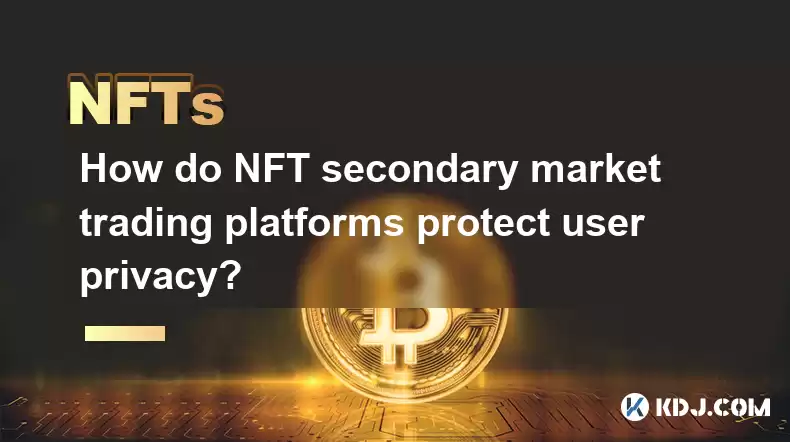
In the world of cryptocurrencies, Non-Fungible Tokens (NFTs) have gained significant traction, particularly in the secondary market trading platforms. As these platforms facilitate the buying and selling of unique digital assets, ensuring user privacy becomes paramount. This article delves into how NFT secondary market trading platforms protect user privacy, exploring various strategies and technologies they employ.
Use of Blockchain Technology
Blockchain technology is at the core of NFT trading platforms. It inherently provides a level of privacy and security by maintaining a decentralized ledger of transactions. Each transaction on the blockchain is encrypted and linked to the previous transaction, making it nearly impossible to alter or falsify data. This ensures that user transactions are secure and private.
- Pseudonymity: Users on NFT platforms typically operate using pseudonyms or wallet addresses rather than their real identities. This adds a layer of privacy as personal information is not directly linked to transactions.
- Immutable Records: Once a transaction is recorded on the blockchain, it cannot be changed. This immutability helps protect against unauthorized alterations that could compromise user privacy.
Implementation of Privacy-Focused Protocols
To further enhance user privacy, many NFT secondary market trading platforms implement privacy-focused protocols. These protocols are designed to obscure transaction details and user identities.
- Zero-Knowledge Proofs: Some platforms use zero-knowledge proofs, a cryptographic method that allows one party to prove to another that a given statement is true, without conveying any additional information. This can be used to verify transactions without revealing the parties involved.
- Mixers and Tumblers: These tools mix multiple transactions together, making it difficult to trace the origin and destination of funds. By using mixers and tumblers, users can enhance their privacy on NFT trading platforms.
Data Encryption and Secure Communication
Data encryption is another critical aspect of protecting user privacy on NFT secondary market trading platforms. These platforms often use advanced encryption techniques to secure user data and communications.
- End-to-End Encryption: Many platforms implement end-to-end encryption for communications between users and the platform. This ensures that messages and transaction details are only accessible to the intended recipients.
- SSL/TLS Protocols: Secure Sockets Layer (SSL) and Transport Layer Security (TLS) protocols are used to encrypt data transmitted between users' devices and the platform's servers. This helps prevent data interception by third parties.
User-Controlled Privacy Settings
NFT trading platforms often provide users with customizable privacy settings, allowing them to control the visibility of their transactions and personal information.
- Private Listings: Users can choose to list their NFTs privately, meaning only selected individuals can view and bid on the item. This helps maintain privacy for high-value or sensitive transactions.
- Anonymized Profiles: Some platforms allow users to create anonymized profiles, where personal details are not displayed. This can be particularly useful for users who wish to keep their identity hidden while trading NFTs.
Compliance with Data Protection Regulations
To ensure user privacy, NFT secondary market trading platforms must comply with various data protection regulations. These regulations set standards for how platforms handle and protect user data.
- GDPR Compliance: Many platforms adhere to the General Data Protection Regulation (GDPR), which requires them to protect the personal data and privacy of EU citizens. This includes obtaining explicit consent for data processing and providing users with the right to access, rectify, and erase their data.
- CCPA Compliance: In the United States, platforms may comply with the California Consumer Privacy Act (CCPA), which grants California residents the right to know what personal data is being collected about them and to request the deletion of that data.
Regular Security Audits and Penetration Testing
To maintain the highest standards of privacy and security, NFT secondary market trading platforms conduct regular security audits and penetration testing. These practices help identify and fix vulnerabilities that could compromise user privacy.
- Security Audits: These are comprehensive reviews of the platform's security measures, conducted by internal or external security experts. Audits help ensure that all systems and protocols are functioning as intended to protect user data.
- Penetration Testing: This involves simulating cyber attacks on the platform to test its defenses. By identifying potential weaknesses, platforms can take proactive measures to strengthen their security and protect user privacy.
User Education and Awareness
Finally, NFT secondary market trading platforms often focus on user education and awareness to help users protect their own privacy. By providing resources and guidance, platforms empower users to take control of their privacy.
- Privacy Guides: Many platforms offer detailed guides on how to use privacy features effectively. These guides can include step-by-step instructions on setting up private listings, using encryption tools, and understanding the implications of sharing personal information.
- Awareness Campaigns: Platforms may run awareness campaigns to educate users about common privacy risks and best practices. These campaigns can help users stay informed about the latest threats and how to mitigate them.
Frequently Asked Questions
Q: Can I trade NFTs anonymously on all platforms?
A: Not all NFT trading platforms offer the same level of anonymity. While some platforms provide robust privacy features like private listings and anonymized profiles, others may require more personal information. It's important to research and choose a platform that aligns with your privacy needs.
Q: How can I verify the privacy policies of an NFT trading platform?
A: To verify the privacy policies of an NFT trading platform, you should review the platform's privacy policy document, which is usually available on their website. Look for details on how they collect, use, and protect your data. Additionally, check if the platform is compliant with regulations like GDPR or CCPA, as this can indicate a higher standard of privacy protection.
Q: Are there any risks to using privacy-focused protocols on NFT platforms?
A: While privacy-focused protocols can enhance user privacy, they may also introduce certain risks. For example, using mixers and tumblers can make it difficult to trace transactions, which could be exploited for illicit activities. It's important to use these tools responsibly and understand the potential implications.
Q: How often should NFT trading platforms conduct security audits?
A: NFT trading platforms should conduct security audits regularly, ideally at least once a year. However, given the rapidly evolving nature of cybersecurity threats, more frequent audits, such as quarterly or even monthly, can provide additional assurance that user privacy is being protected effectively.
Disclaimer:info@kdj.com
The information provided is not trading advice. kdj.com does not assume any responsibility for any investments made based on the information provided in this article. Cryptocurrencies are highly volatile and it is highly recommended that you invest with caution after thorough research!
If you believe that the content used on this website infringes your copyright, please contact us immediately (info@kdj.com) and we will delete it promptly.
- Kaspa, HBAR, and Cold Wallet: A New York Minute on Crypto's Latest Moves
- 2025-08-04 09:11:54
- Ethereum Whale Watch: Selling Pressure and Price Volatility
- 2025-08-04 09:11:54
- XRP ETF Mania: Teucrium's Crypto Triumph and the Altcoin Frenzy
- 2025-08-04 09:30:13
- Crypto Wallet Scam: A $900K Loss & What You Need to Know
- 2025-08-04 09:35:13
- Dogecoin's Wild Ride: Elliott Wave, Stochastic RSI, and What's Next, Ya Know?
- 2025-08-04 09:40:12
- Shiba Inu (SHIB), Crypto Investments, and the Meme Coin Evolution: What's the Deal?
- 2025-08-04 09:45:17
Related knowledge
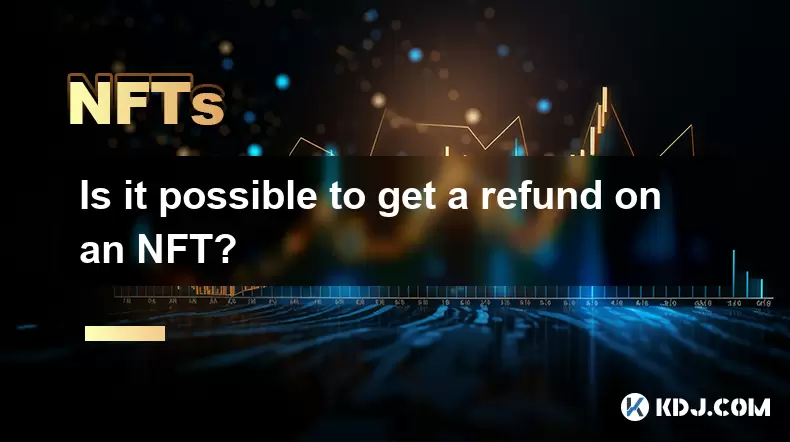
Is it possible to get a refund on an NFT?
Jul 21,2025 at 08:35pm
Understanding NFT Transactions and RefundsWhen you purchase an NFT (Non-Fungible Token), the transaction is typically recorded on a blockchain, making...
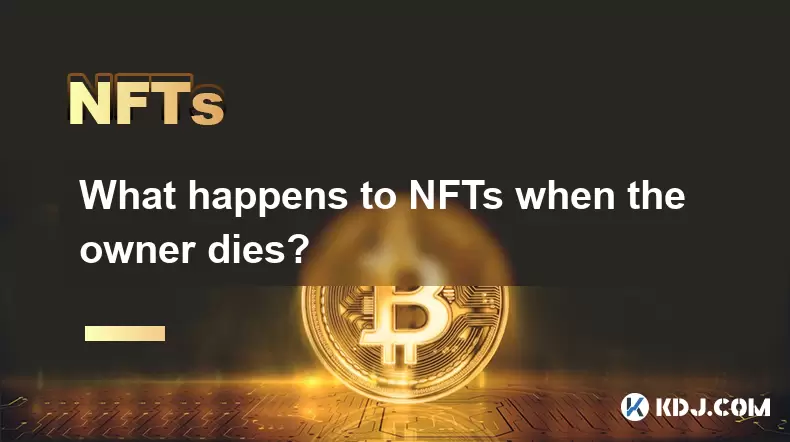
What happens to NFTs when the owner dies?
Jul 22,2025 at 02:43pm
Legal Ownership and Digital AssetsWhen an individual owns NFTs, the question of what happens to these assets upon their death is a pressing one. NFTs ...
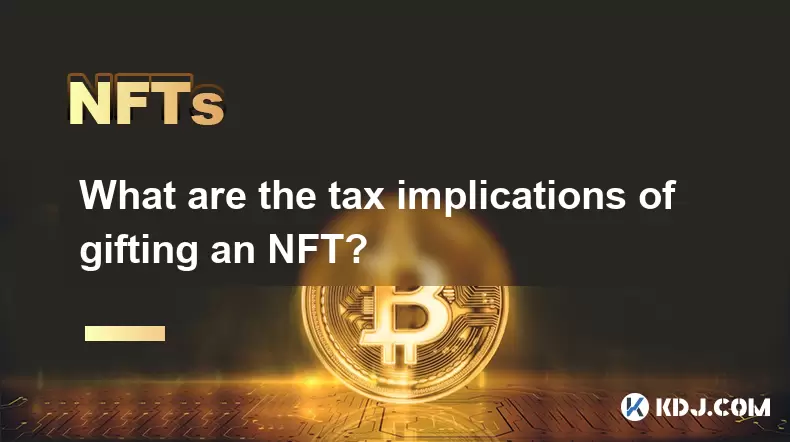
What are the tax implications of gifting an NFT?
Jul 19,2025 at 04:21am
Understanding the Basics of NFT GiftingGifting a Non-Fungible Token (NFT) involves transferring ownership from one individual to another without recei...
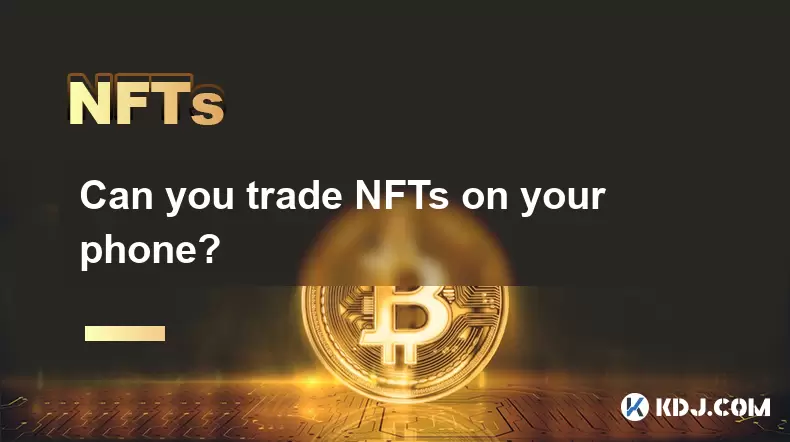
Can you trade NFTs on your phone?
Jul 18,2025 at 04:29am
Trading NFTs on Mobile DevicesYes, you can trade NFTs on your phone, and the process has become increasingly streamlined thanks to a variety of mobile...
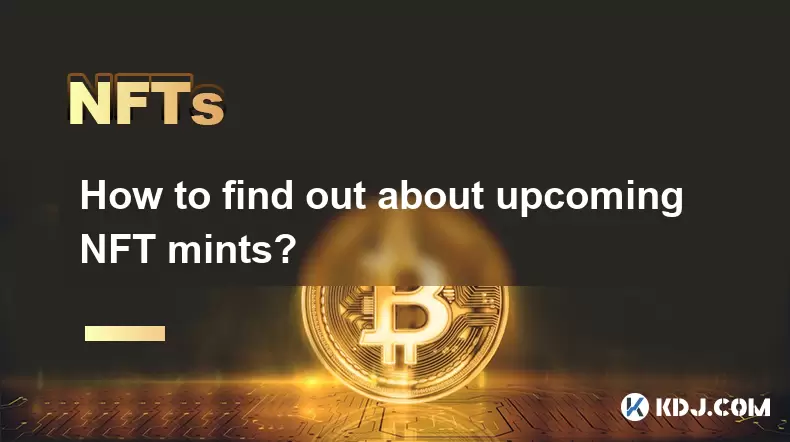
How to find out about upcoming NFT mints?
Jul 18,2025 at 11:50am
Exploring NFT Minting OpportunitiesUnderstanding the landscape of upcoming NFT mints is crucial for collectors, investors, and creators who wish to st...
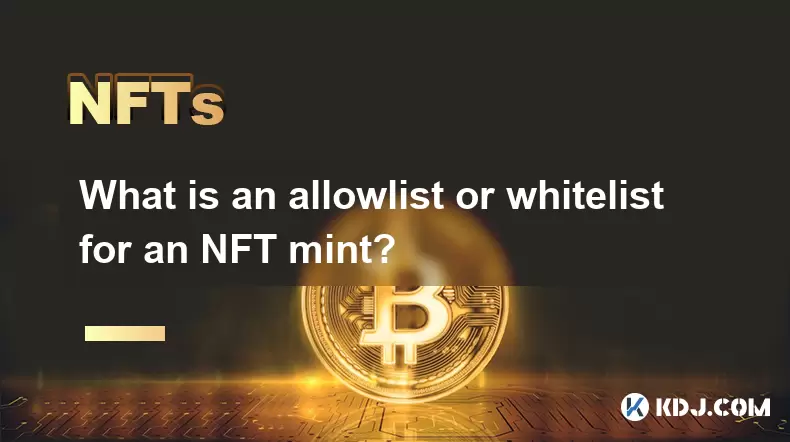
What is an allowlist or whitelist for an NFT mint?
Jul 20,2025 at 07:14pm
Understanding the Concept of an Allowlist for NFT MintingAn allowlist, also commonly referred to as a whitelist, is a mechanism used in the NFT mintin...

Is it possible to get a refund on an NFT?
Jul 21,2025 at 08:35pm
Understanding NFT Transactions and RefundsWhen you purchase an NFT (Non-Fungible Token), the transaction is typically recorded on a blockchain, making...

What happens to NFTs when the owner dies?
Jul 22,2025 at 02:43pm
Legal Ownership and Digital AssetsWhen an individual owns NFTs, the question of what happens to these assets upon their death is a pressing one. NFTs ...

What are the tax implications of gifting an NFT?
Jul 19,2025 at 04:21am
Understanding the Basics of NFT GiftingGifting a Non-Fungible Token (NFT) involves transferring ownership from one individual to another without recei...

Can you trade NFTs on your phone?
Jul 18,2025 at 04:29am
Trading NFTs on Mobile DevicesYes, you can trade NFTs on your phone, and the process has become increasingly streamlined thanks to a variety of mobile...

How to find out about upcoming NFT mints?
Jul 18,2025 at 11:50am
Exploring NFT Minting OpportunitiesUnderstanding the landscape of upcoming NFT mints is crucial for collectors, investors, and creators who wish to st...

What is an allowlist or whitelist for an NFT mint?
Jul 20,2025 at 07:14pm
Understanding the Concept of an Allowlist for NFT MintingAn allowlist, also commonly referred to as a whitelist, is a mechanism used in the NFT mintin...
See all articles

























































































